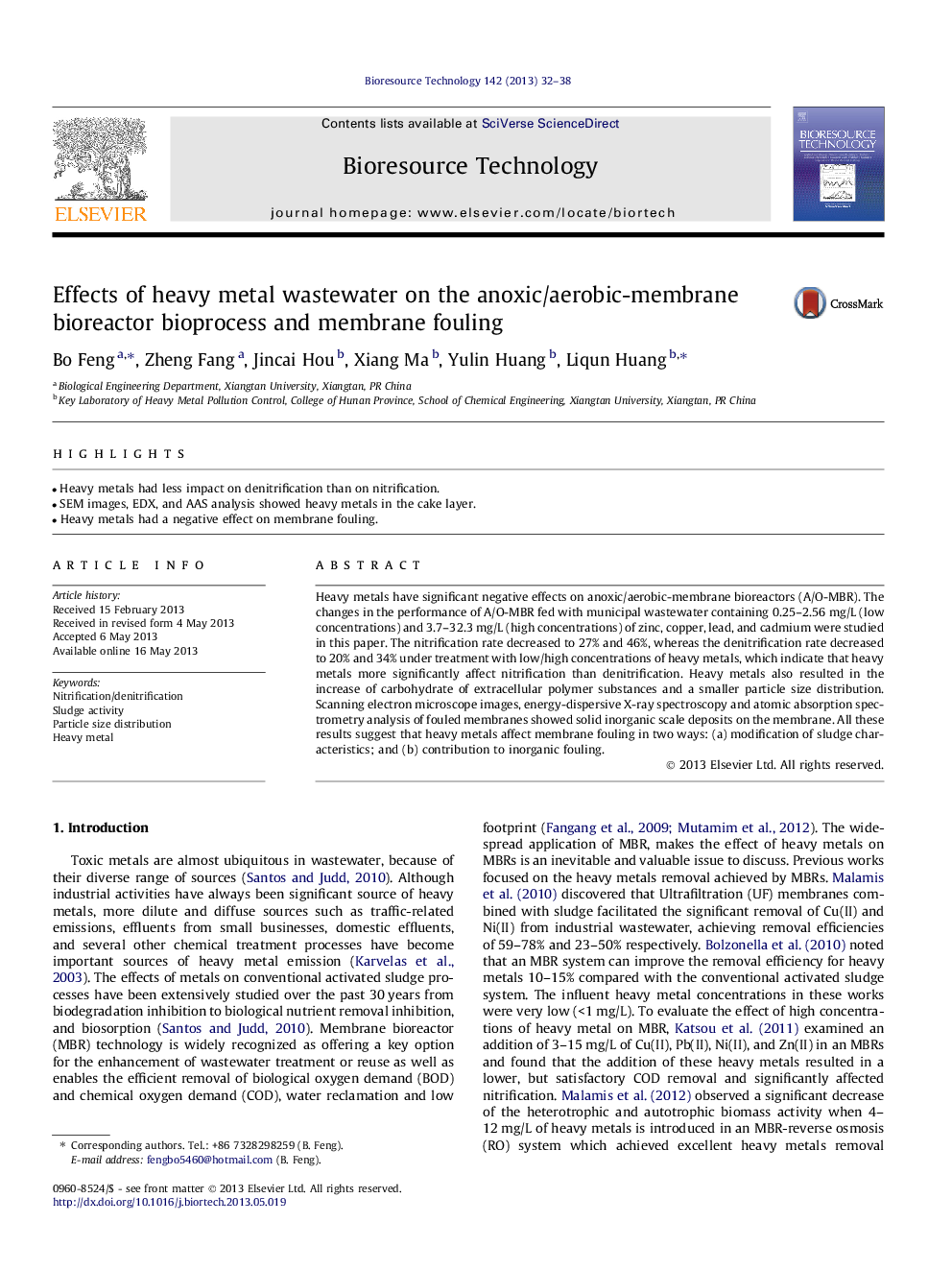| Article ID | Journal | Published Year | Pages | File Type |
|---|---|---|---|---|
| 7081425 | Bioresource Technology | 2013 | 7 Pages |
Abstract
Heavy metals have significant negative effects on anoxic/aerobic-membrane bioreactors (A/O-MBR). The changes in the performance of A/O-MBR fed with municipal wastewater containing 0.25-2.56Â mg/L (low concentrations) and 3.7-32.3Â mg/L (high concentrations) of zinc, copper, lead, and cadmium were studied in this paper. The nitrification rate decreased to 27% and 46%, whereas the denitrification rate decreased to 20% and 34% under treatment with low/high concentrations of heavy metals, which indicate that heavy metals more significantly affect nitrification than denitrification. Heavy metals also resulted in the increase of carbohydrate of extracellular polymer substances and a smaller particle size distribution. Scanning electron microscope images, energy-dispersive X-ray spectroscopy and atomic absorption spectrometry analysis of fouled membranes showed solid inorganic scale deposits on the membrane. All these results suggest that heavy metals affect membrane fouling in two ways: (a) modification of sludge characteristics; and (b) contribution to inorganic fouling.
Related Topics
Physical Sciences and Engineering
Chemical Engineering
Process Chemistry and Technology
Authors
Bo Feng, Zheng Fang, Jincai Hou, Xiang Ma, Yulin Huang, Liqun Huang,
